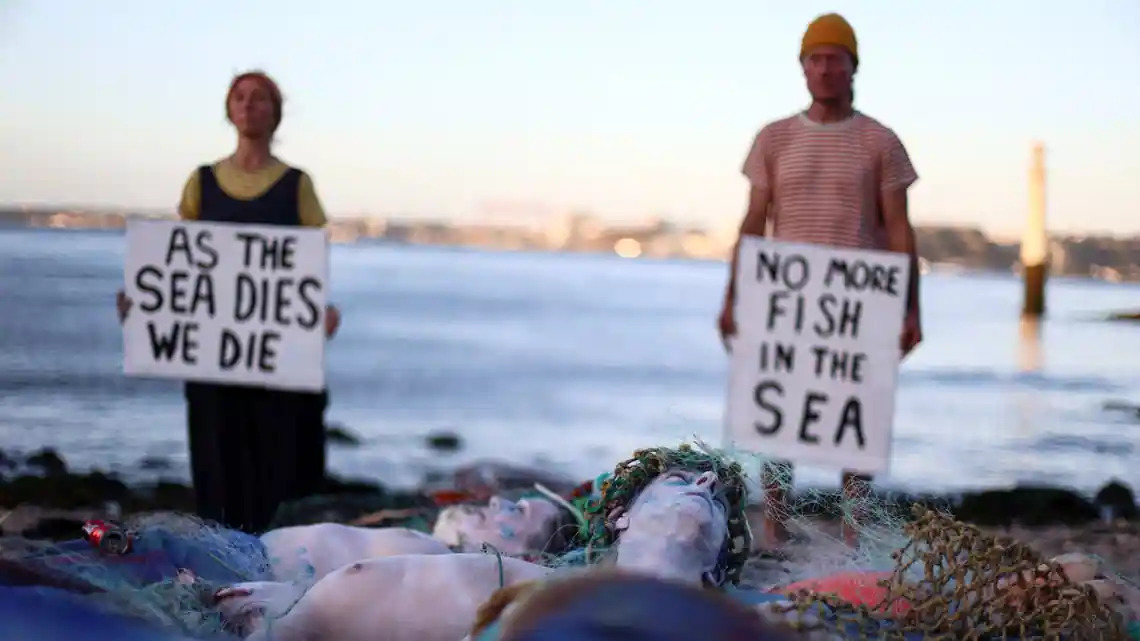Following a week-long discussion in Lisbon, the United Nations Ocean Conference concluded on July 1st. Representatives of governments, heads of state, NGO’s and other entities came together to achieve a common goal, Sustainable Development Goal (SDG) No. 14, which strives to protect life below water.
Even though the conference has concluded with a lot of commitments, the experts have emphasized the time-sensitive nature of the work that must be done to protect the oceans. As the director-general of the World Wildlife Fund (WWF), Marco Lambertini said, “the ocean, climate, and communities worldwide need real progress, not promises, when it comes to ocean health.”
More than 6,000 participants, including heads of states and governments and representatives from civil society, have attended the conference. As part of his closing remarks, Miguel de Serpa Soares, the UN Under-Secretary-General for Legal Affairs, praised Kenya and Portugal for the success of the conference.
“It (the conference) has given us the opportunity to unpack the critical issues and generate new ideas. It also made clear the work that remains, and the need to scale up that work for the recovery of our ocean,” he said.
What is Sustainable Development Goal No.14?
With regards to Sustainable Development Goal No.14, it aims to preserve life below the surface of the water and is further divided into a number of targets. Among those, some targets were intended to be achieved in 2020, such as Target 14.2-Protect and Restore Ecosystems, which aims to sustainably manage and protect marine and coastal ecosystems to avoid significant adverse impacts, including strengthening their resilience, and take restoration actions to achieve healthy and productive oceans.
Other goals, such as ‘increasing the economic benefits to small islands, developing countries, and least developed countries from the sustainable use of marine resources, including through sustainable management of fisheries, aquaculture, and tourism,’ were supposed to be met by 2030.
Leaders have acknowledged their failure to meet ocean-related targets but reiterated their commitment to meet these targets.
The signatories have also echoed the increasing relevance of implementing the Paris Climate Agreement of 2015 and the Glasgow Climate Pact to ensure the health, sustainability, and resilience of the oceans. (UN News)
Why was the Lisbon UNOC so significant?
This is the last major political gathering before the leaders meet in August to negotiate and bring about the long-awaited treaty to safeguard the open seas beyond national jurisdictions. As Greenpeace’s Laura Meller has highlighted, the success of the present conference will be measured in August.
Voluntary Commitments
The European Investment Bank will extend an additional EUR 150 million across the Caribbean Region as part of the Clean Ocean Initiative to improve climate resilience, water management, and solid waste management. (UN news)
Some countries have announced new marine protected areas (MPAs).
Furthermore, Portugal committed to ensure that 100 percent of the marine area under Portuguese jurisdiction is assessed as being in a Good Environmental State. In addition, it is willing to classify 30 percent of the nation’s marine areas by 2030.
In addition, Kenya is developing a national blue economy strategic plan that is inclusive and multi-stakeholder-focused.
India is committed to a Coastal Clean Seas Campaign and has begun to ban single-use plastic from July 1st.
Conclusion
Mr. Serpa Soares concluded, “as the famous Tongan and Fijian writer Epeli Hau’ofa said, we are the ocean. The ocean is in all of us, it is what sustains us, and it is the basis of our future survival on this planet Earth.”

